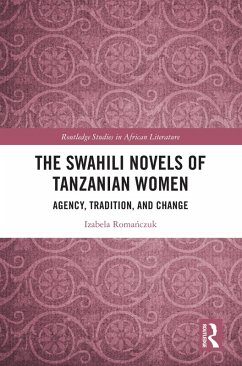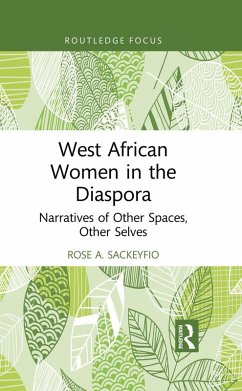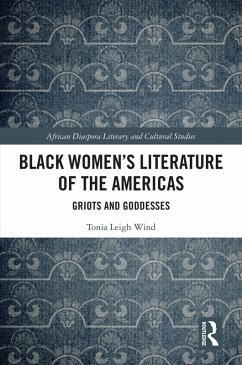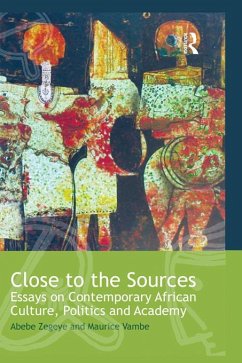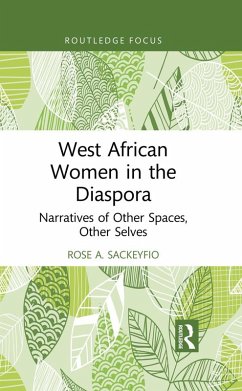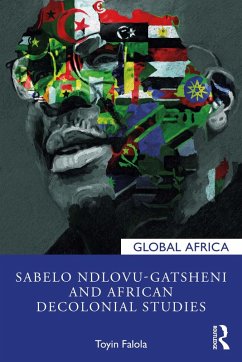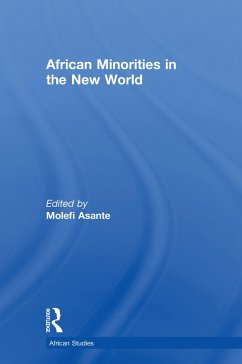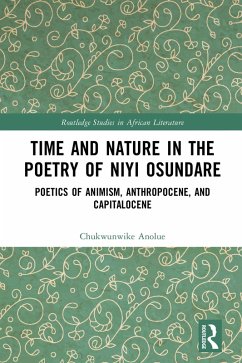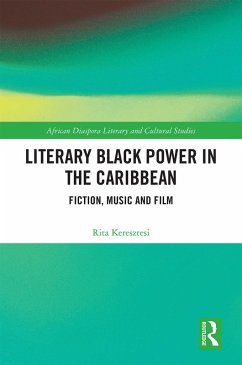
The Swahili Novels of Tanzanian Women (eBook, PDF)
Agency, Tradition, and Change
Versandkostenfrei!
Sofort per Download lieferbar
42,95 €
inkl. MwSt.
Weitere Ausgaben:

PAYBACK Punkte
21 °P sammeln!
This book provides a rich and full analysis of female Swahili novelists from a feminist perspective, highlighting their important contributions to the living Swahili literary and intellectual tradition.Compared to the diverse and centuries-old oral literature, or religious-philosophical poetry tradition developing since at least the 17th century, the novel is a relatively young phenomenon in the rich body of Swahili literary output, emerging only in the last hundred years. Since then, academia has focused primarily on male novelists, largely disregarding important female writers such as Ndyana...
This book provides a rich and full analysis of female Swahili novelists from a feminist perspective, highlighting their important contributions to the living Swahili literary and intellectual tradition.
Compared to the diverse and centuries-old oral literature, or religious-philosophical poetry tradition developing since at least the 17th century, the novel is a relatively young phenomenon in the rich body of Swahili literary output, emerging only in the last hundred years. Since then, academia has focused primarily on male novelists, largely disregarding important female writers such as Ndyanao Balisidya, Zainab Burhani, Martha Mvungi Mlangala, Zainab Mwanga, Lucy Nyasulu, and Zainab Alwi Baharoon. This book traces the evolution of women's writing in Tanzania, highlighting emancipatory and feminist discourses, as well as intersectional themes of class, education, and urbanisation. The author demonstrates how concepts such as utu 'the essence of humanity', aibu 'shame', 'disgrace' and heshima 'honor', 'social respectability' are used in the novels to articulate the value systems and social norms in Swahili communities, including the gendered perceptions of women that they create.
Grounded throughout in the historical and socio-political contexts of the authors it discusses, this book will be an important read for researchers of African literature and women's studies.
Compared to the diverse and centuries-old oral literature, or religious-philosophical poetry tradition developing since at least the 17th century, the novel is a relatively young phenomenon in the rich body of Swahili literary output, emerging only in the last hundred years. Since then, academia has focused primarily on male novelists, largely disregarding important female writers such as Ndyanao Balisidya, Zainab Burhani, Martha Mvungi Mlangala, Zainab Mwanga, Lucy Nyasulu, and Zainab Alwi Baharoon. This book traces the evolution of women's writing in Tanzania, highlighting emancipatory and feminist discourses, as well as intersectional themes of class, education, and urbanisation. The author demonstrates how concepts such as utu 'the essence of humanity', aibu 'shame', 'disgrace' and heshima 'honor', 'social respectability' are used in the novels to articulate the value systems and social norms in Swahili communities, including the gendered perceptions of women that they create.
Grounded throughout in the historical and socio-political contexts of the authors it discusses, this book will be an important read for researchers of African literature and women's studies.
Dieser Download kann aus rechtlichen Gründen nur mit Rechnungsadresse in A, B, BG, CY, CZ, D, DK, EW, E, FIN, F, GR, HR, H, IRL, I, LT, L, LR, M, NL, PL, P, R, S, SLO, SK ausgeliefert werden.




